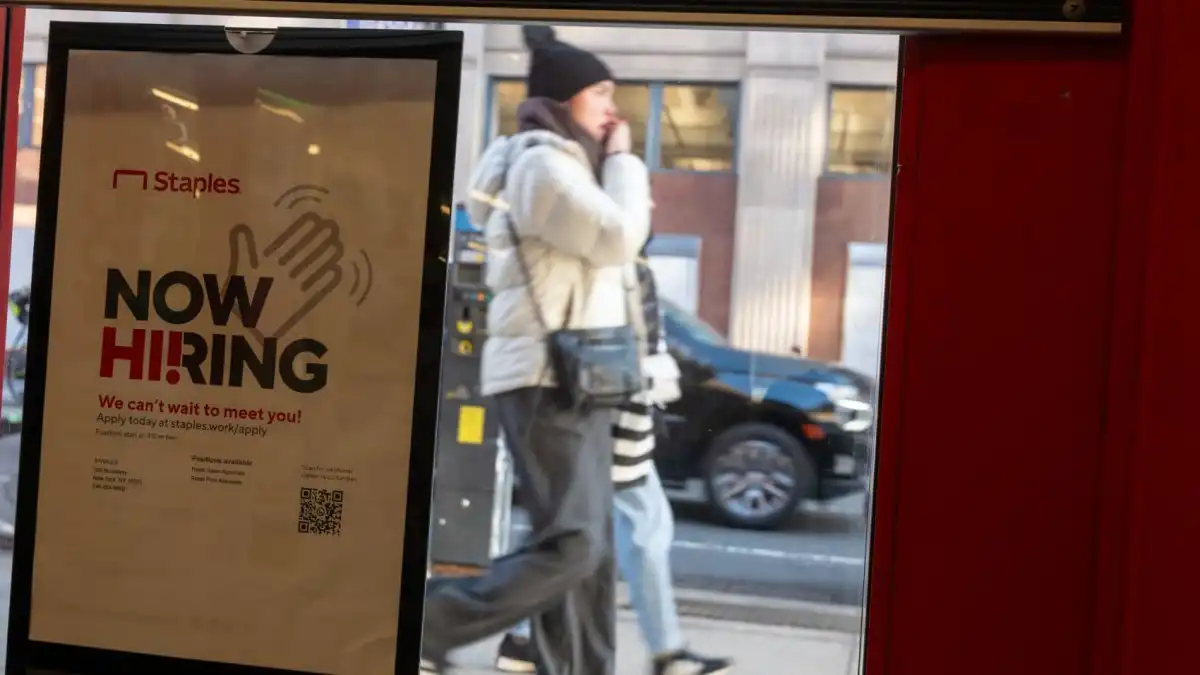CNBC Daily Open: Jobs market, Fed influence
"Breaking: U.S. jobs market adds 216,000 jobs, unemployment rate holds steady at 3.7%. Stocks close losing week. Subscribe to CNBC Daily Open!"
Good day, everyone! This is today's CNBC Daily Open, your go-to source for the latest news on international markets. CNBC Daily Open is your daily digest to keep you informed of everything you need to know, regardless of where you are. If you like what you see, don't hesitate to subscribe here.
The U.S. labor market added 216,000 jobs in December, a significant increase compared to the 170,000 jobs expected by economists surveyed by Dow Jones. This number also surpassed the downwardly revised 173,000 jobs added in November. Surprisingly, the unemployment rate remained steady at 3.7%, defying estimates of a 10-basis-point rise. Additionally, average hourly earnings jumped by 4.1% from a year earlier, higher than the 3.9% forecast.
U.S. stocks experienced a slight uptick on Friday, but they couldn't reverse a weekly decline. Treasury yields also rose for the second day, with the 10-year yield closing at 4.051%. In Asia-Pacific markets, the week started on a negative note. The Hang Seng Index in Hong Kong dropped around 2%, while Mainland China's Shanghai Composite fell 0.9% as shadow banking conglomerate Zhongzhi Enterprises Group filed for bankruptcy liquidation on Friday.
In 2023, Asia-Pacific markets rallied, with Japan's Nikkei 225 leading the pack with a 28% jump. Analysts predict that markets in India, Japan, and Vietnam will be among the region's top performers. However, pessimism surrounding the Chinese market is unlikely to dissipate soon, although some sectors could present attractive opportunities.
The U.S. Federal Aviation Administration has issued a temporary grounding of the Boeing 737 Max 9 aircraft, preventing airlines from using these particular Boeing models for flying. This directive comes after a piece of the aircraft blew out in the middle of an Alaska Airlines flight, resulting in a gaping hole on the side of the plane.
Citi predicts that the demand for artificial intelligence applications will continue to surge this year, which will positively impact chipmakers. The bank estimates that specialized memory and storage products meant for AI chips will claim a greater share of the chip sector, boosting nine memory chip stocks, with one having a potential 60% upside.
The headline number on the U.S. jobs report is undoubtedly startling, with 216,000 new jobs in December, compared to an expected 170,000. The unemployment rate also defied forecasts for a decline, while average hourly earnings exceeded estimates.
The data suggests that the U.S. labor market is still running hot despite the 11 interest-rate hikes implemented by the Federal Reserve. However, the numbers aren't significant enough to prompt a resumption of rate hikes. Upon closer examination, there are pockets of weakness in the report.
While the headline number is impressive, it's unlikely to persuade the Fed to resume hiking. Art Hogan, chief market strategist at B. Riley Financial, noted that the acceptable range for nonfarm payrolls gain is likely something like 100,000-250,000, rather than the Dow Jones estimate of 170,000.
October and November's jobs numbers were also downwardly revised, pointing to a weaker-than-expected labor market last quarter. On an annual basis, 2023 saw job growth of 2.7 million, significantly lower than 2022's addition of 4.8 million jobs.
The theme of growth continuing but slowing was also evident in December's ISM services index, which came in at 50.6%, indicating growth in the service sector but nearly two percentage points below expectations and November's reading.
Despite the shock of the headline jobs number, stocks managed to eke out small gains on Friday. The S&P 500 added 0.18%, the Dow Jones Industrial Average inched up 0.07%, and the Nasdaq Composite ticked up 0.09%. However, these marginal increases couldn't prevent major indexes from registering their first negative week in 10. For the week, the S&P fell 1.52%, the Dow lost 0.59%, and the Nasdaq slumped 3.25%, its biggest decline since September.
Investors are hoping for a positive catalyst for markets and are keeping their fingers crossed, hoping that December's consumer price index report comes in cooler than expected.











Comments on CNBC Daily Open: Jobs market, Fed influence